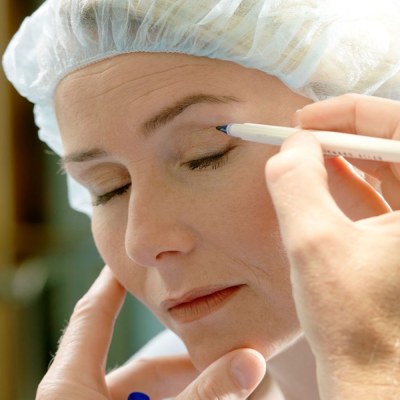
Do you want to
Regain?
Regenerate?
Redefine your appearance in front of the World?
Reconstructive plastic surgery is the option for you.



Typically, plastic surgery is performed to boost one 's beauty, which is often viewed as a self-esteem booster for many people. Reconstructive surgery can -


1. How is reconstructive surgery done?
Many reconstructive surgeries use microvascular techniques. This is also called “free flap surgery.” In this type of surgery, the surgeon takes tissue and blood vessels from 1 part of the person's body and moves them to the damaged part.
2. What is the difference between Plastic Surgery & Cosmetic Surgery?
Reconstructive surgery is performed on abnormal structures of the body, caused by congenital defects, developmental abnormalities, trauma, infection, tumours or disease. Cosmetic surgery is performed to reshape normal structures of the body, usually to improve form and appearance.
3. Why is reconstructive surgery important?
Plastic surgery relieves suffering and improves patients' quality of life through the reconstruction of congenital or acquired disfigurement. Plastic surgeons are accustomed to addressing patients' physical problems, which ultimately impacts their psychological, social and spiritual experiences.
4. How long does it take to recover from Breast Reconstructive Surgery?
Most women can start to get back to normal activities within 6 to 8 weeks. If implants are used without flaps, your recovery time may be shorter. Some things to keep in mind: Reconstruction does not restore normal feeling to your breast, but some feeling may return over years.
5. Is plastic surgery painful?
For most facial plastic surgery procedures, you will be under general anaesthesia so you won't feel any pain during surgery. After any surgical procedure, you can expect some discomfort. Generally, the postoperative pain is mild and we can easily control it with pain medication.
1. What is bariatric surgery?
Gastric bypass and other weight-loss surgeries are collectively known as bariatric surgery. It involves making changes to your digestive system to help you lose weight. Bariatric surgery is done when diet and exercise haven't worked or when you have serious health problems because of your weight.
2. How does bariatric surgery work?
Bariatric surgery, such as gastric bypass, gastric sleeve, and laparoscopic adjustable gastric banding, work by changing the anatomy of your gastrointestinal tract (stomach and digestive system) or by causing different physiologic changes in your body that change your energy balance and fat metabolism.
3. What is the safest form of weight loss surgery?
Sleeve gastrectomy surgery The benefits that the sleeve is a bit safer than gastric bypass: The risk of all complications is 3% after sleeve vs. 5% with Roux-en-Y gastric bypass.
4. What is the success rate of bariatric surgery?
Success from bariatric surgery:
Patients may lose 30 to 50 per cent of their excess weight in the first six months, and 77 per cent of excess weight as early as 12 months after surgery. Another study showed that patients could maintain a 50 to 60 per cent loss of excess weight 10 to 14 years after surgery.
5. How painful is bariatric surgery?
You may feel pain at your incision site or from the position your body was in during surgery. Some patients also experience neck and shoulder pain after laparoscopic bariatric surgery. ... Although it is normal to experience some discomfort after surgery, keeping your pain under control is necessary for recovery.
6. How quickly do you lose weight after bariatric surgery?
A patient who is compliant and motivated can lose half of his or her excess weight or more in two years after the gastric bypass surgery. Moreover, most patients rapidly lose weight within the first six months after the surgery.
Is lips surgery painful?
At the very least, you should expect redness, swelling, and slight pain within the first few days after your surgery. Less commonly, lip reduction surgery may cause infection or scarring.
How long does it take for Lip surgery to heal?
It usually takes about 3 to 4 weeks for the incision to heal. The incision will leave a pink or red scar. You can expect the scar to feel hard and tight at first. The scar should fade and become softer and flatter in the months and years after surgery.
How long does Lip Surgery take?
A procedure can take up to two hours at your doctor's office or outpatient centre, depending on the complexity, and you will be sent home the same day.
Is Lip Surgery Safe?
Surgery is much different from a dermatological procedure, and there are also more risks, including infection and scarring. Still, lip reduction surgery is considered safe overall when performed by an experienced and board-certified provider.
Can Lip Size be reduced without Surgery?
While surgery is the only definitive way you can decrease the volume in your lips, there are alternative methods to help reduce the appearance of lip size. Some possibilities include: using dermal fillers in your cheeks to add volume in the upper part of your face.
How is a Lip lift done?
Typically done under local anaesthesia in less than an hour, the operation shortens the space between the bottom of the nose and the top of the lips by carving out a bullhorn-shaped strip of skin just below the nostrils.